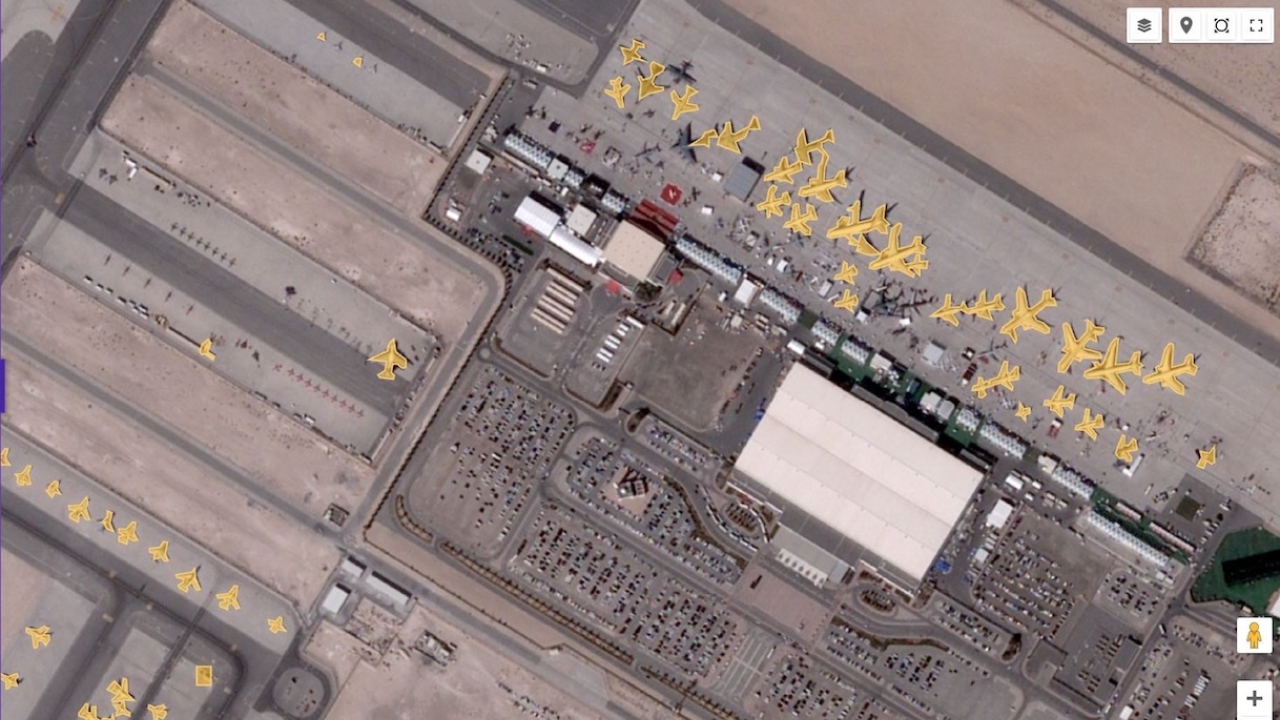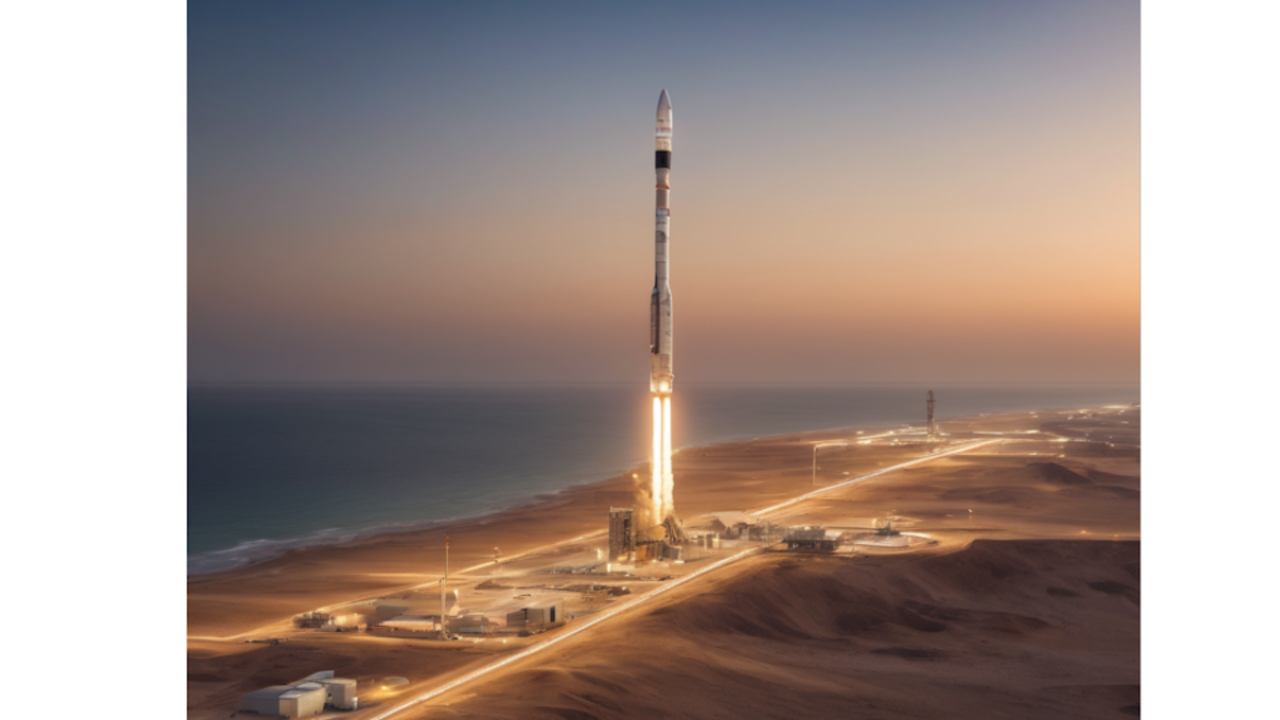LOCATION, LOCATION The key to winning the new space race
The Dubai Airshow enabled BlackSky to demonstrate how its “space-as-a-service” satellite imagery is revolutionising monitoring, analysis and intelligence.

BlackSky’s geospatial intelligence services bring together its Spectra AI aircraft detect algorithm with image data from the company’s high-revisit satellite constellation to easily identify objects of interest at more than 200 of the world’s most important airports. Picture: BlackSky.
BlackSky offers global monitoring services that combine artificial intelligence, cloud computing, multi-sensor data fusion, activity analysis, and autonomous satellite tasking.
Andy Stephenson, the company’s vice president of international business development and sales, took part in the show’s space forum to discuss the innovative concept of ‘space-as-a-service’.
“At BlackSky, we are focused on real-time geospatial intelligence as a service delivered through subscription-based offerings,” he explained. “Enabled by cloud technology, it’s easy to do, customers understand it, and we’re able to offer it at an affordable price point to make access to space a reality.
“Our on-demand constellation of satellites can image a location multiple times throughout the day from morning to dusk. We monitor for economic and pattern-of-life anomalies to produce alerts and enhance situational awareness.
“The real winners in the new space-as-a-service race are thinking well beyond access to launch vehicles. The key competitive advantage is access to real-time geospatial intelligence.”
Stephenson leads BlackSky’s international business for the defence, intelligence and national security markets. He highlighted how BlackSky’s disruptive, integrated satellite-to-analytics model streamlines customer experience and delivers actionable insights in less than 90 minutes.
“Our global real-time awareness monitoring solution is available via access to our proprietary geospatial data and analytics platform, Spectra AI,” he explained.
“Spectra AI requires basic online infrastructure with little or no set-up, through which our customers derive unique insights and commercially valuable information and analytics that informs them and allows them to run their businesses with greater efficiency and certainty.”
Stephenson demonstrated how a single user could select any location in the world, add automated aircraft and vessel identification monitoring, and task BlackSky’s proprietary satellite constellation from his or her smartphone in just minutes, with no human interaction required.
Ninety minutes later they have their satellite imagery, taken at 0.8m resolution, with AI automatically highlighting new aircraft, vessels, or buildings since the satellite’s last pass.
“We have lots of interest from fixed-base operators who want to optimise their movements, or keep an eye on their competitors,” Stephenson said.
BlackSky is basically putting government-level intelligence imagery into the hands of the man in the street.
“Cost-effective and accurate imagery-derived analytics minimises the need for human analysis and time-consuming imagery exploitation,” said Stephenson.
“Our future Gen-3 satellites are being designed to improve our imaging resolution and include short wave infrared (IR) imaging technology for a broad set of imaging conditions, including night-time, low-light and all-weather collections,” he added.
“The tighter the decision loop the better. We aim to have 30 satellites by 2025 and our goal is to get satellite revisit times down to about 30 minutes.”
In Dubai, BlackSky showed a series of images monitoring the build-up of the show site over the days immediately prior to the opening. Subsequent images showed arriving aircraft automatically highlighted in yellow by BlackSky’s AI system.
“The AI identified the aircraft automatically and sent the image out less than 90 minutes after it was taken,” said Stephenson.
“The combination of our high-revisit small satellite constellation, along with our AI analytics spectra platform and low constellation cost, is disrupting the market for geospatial imagery and space-based data and analytics services.
“BlackSky customers don’t have to worry about the space segment, end-of-life or the ground stations because we do all that and deliver the data, including the analytics and AI,” he concluded.
BlackSky also confirmed in mid December that it had completed three back-to-back launches, doubling its satellite constellation size to 12.
Stay up to date
Subscribe to the free Times Aerospace newsletter and receive the latest content every week. We'll never share your email address.


